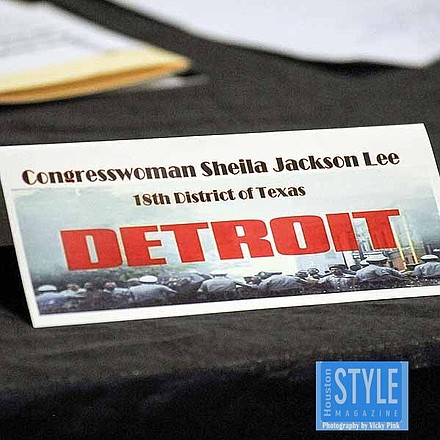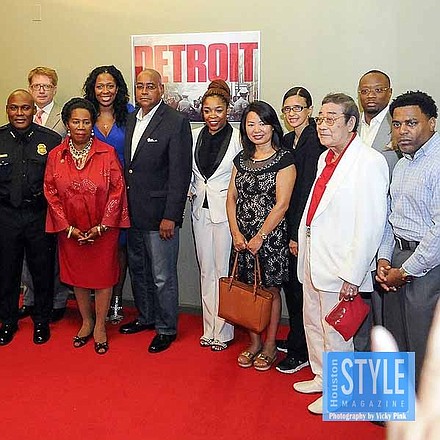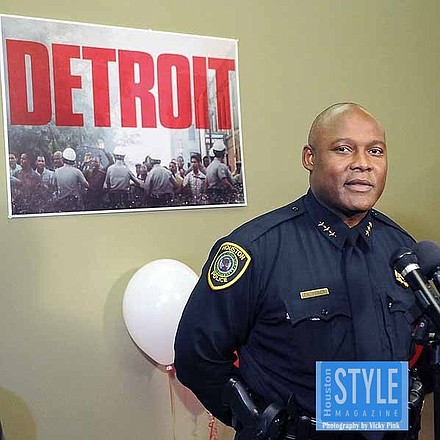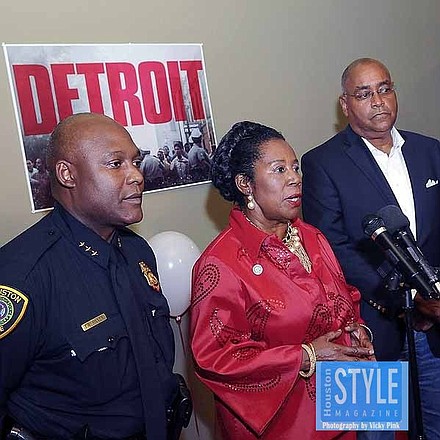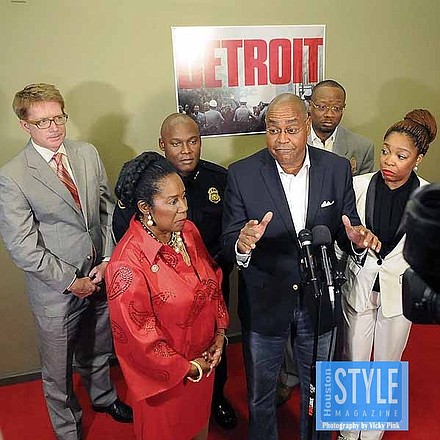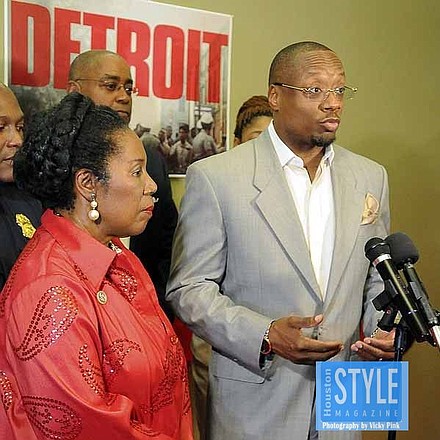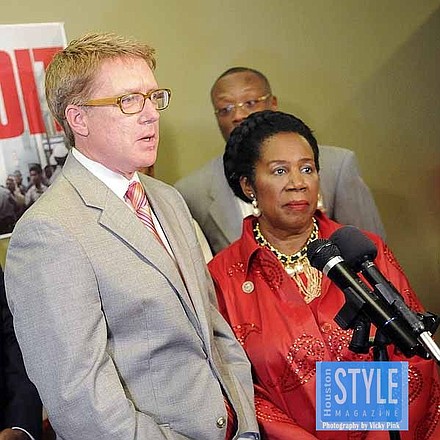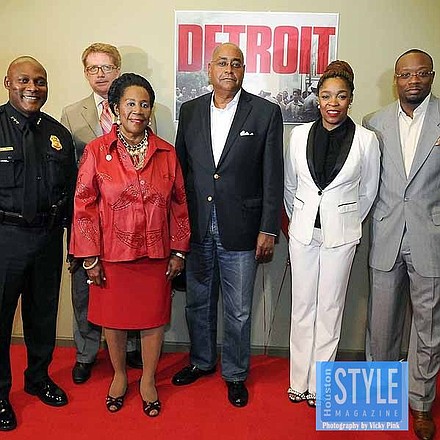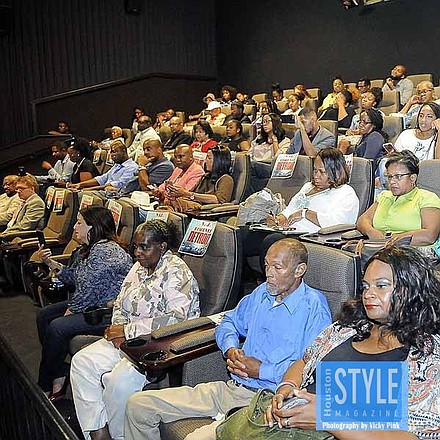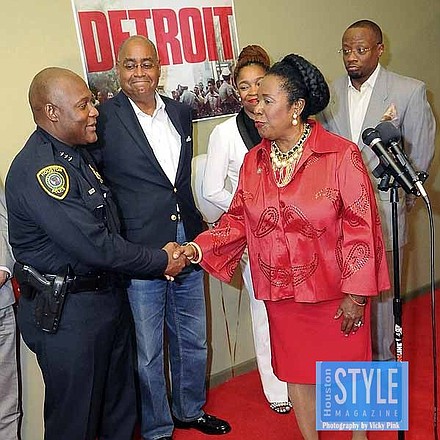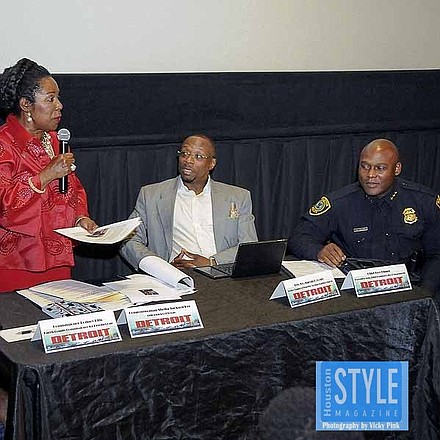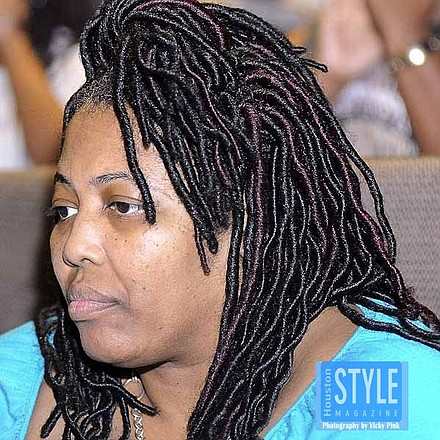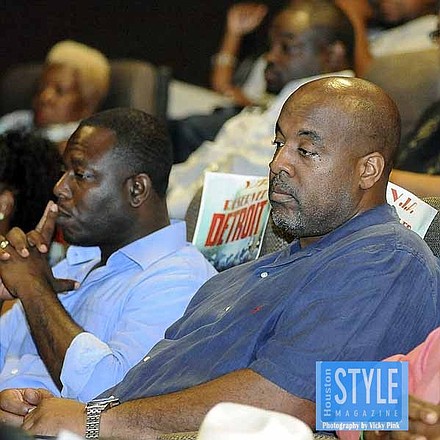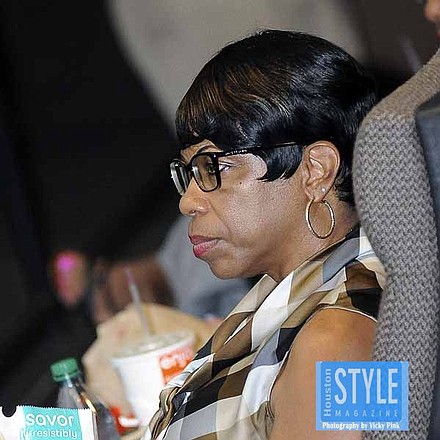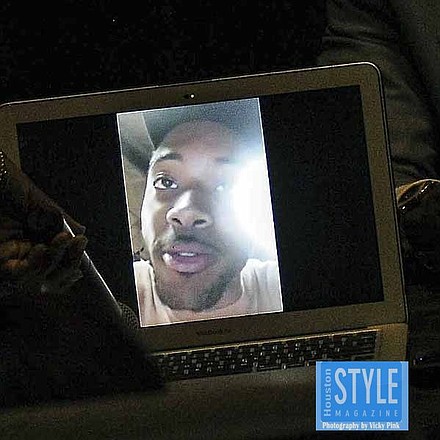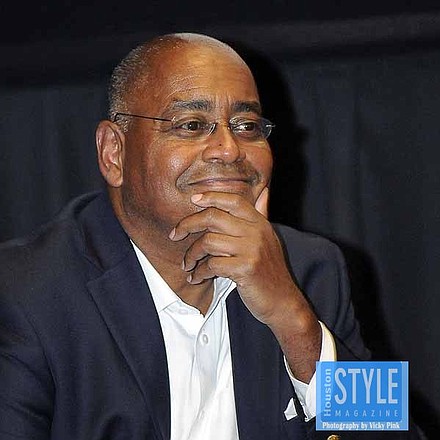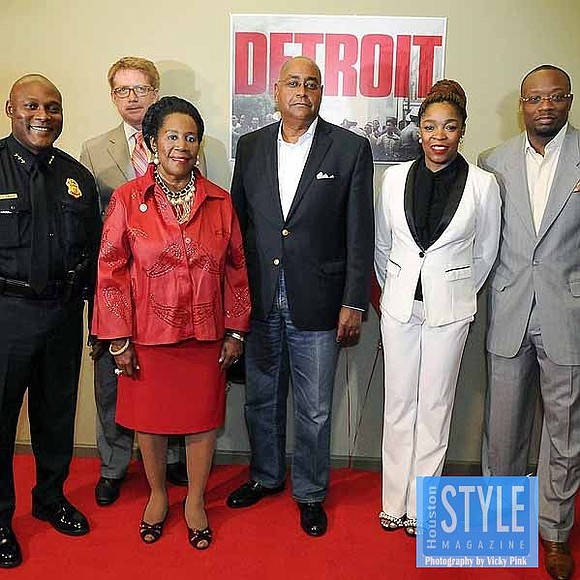Congresswoman Sheila Jackson Lee Brings 'Detroit' to Houston
Lisa Valadez | 8/4/2017, 10 a.m.
Sheila Jackson Lee knew the importance of ‘Detroit’. So much so that when the film regarding the 1967 killing of three African-American men during the 12th Street Riot began screening across the country, she secured the only Tex- as-based screening and decided upon Houston to show it. It occurred only moments after a lengthy panel discussion in regards to community-based policing and reforms in criminal justice and the bail system.
Joining Jackson Lee were Harris County Precinct One Commissioner Rodney Ellis, HPD Executive Assistant Chief Troy Finner, and Reverend Dr. Marcus Cosby of Wheeler Avenue Baptist Church.
The need for community-based policing came with ‘Detroit’ as the perfect tie-in. A visceral, almost anxiety inducing film, Kathryn Bigelow’s retelling of the incident in which three African-American men were killed at a hotel by Detroit police officers and Michigan State guardsmen feels almost directly similar to the stories of unarmed men and women of color being killed by the police in modern times. Similar to those incidents, the subsequent murder trials of the officers involved in the 1967 case found a
result closely mirroring the Justice System as we know it. Bigelow’s prior films such as the Academy Award winner ‘The Hurt Locker’ and ‘Zero Dark Thirty’ should have prepared viewers for ‘Detroit.’ While those films centered around the Iraq War and the capture of Osama Bin Laden, one underscored a tone of fatalism and the other heroic revenge. ‘Detroit’ only bows to the whims and powers of racism and the horrors it can cast upon people who are powerless to stop it. Understanding how Michigan’s most populated city descended into chaos is woven into the larger narrative of the fiery ‘60s and through plenty of brutality and forms of discrimination, all things swell at the Algiers.
Not knowing about the Algiers Motel in- cident feels like another reminder of history in regards to black men and the police. It is at times a torturous, agonizing, maddening and important film only because its subject matter feels like a giant reminder. Many of the black men at the Algiers attempt to diffuse the situation yet are tossed into a threatening situation by racist, prejudiced officers. It becomes less about changing a situation for the better and more about surviving the night. It is the latest film to shed
a light on institutionalized racism. Setting it in comparison to the tumultuous 1960s only sheds a larger light about a problem that has persisted through American history, in particular for men and women of color.
During the panel, Jackson Lee echoed the sentiments of those who’ve seen the film and feel that the horrors persist today. “Five decades have passed since the horrific events graphically depicted in ‘Detroit’, yet our criminal justice system is still grappling with some of the same issues regarding its treatment of minorities,” she said. “We must continue the conversation and work toward building trust between law enforcement and the communities they serve.”
Choosing a film such as ‘Detroit’ to project this message is a calculated move. An ensemble cast, the film’s black leads are all relatively fresh, new faces from ‘Star Wars’’ John Boyega who plays a security guard caught in the middle of the madness to Jason Mitchell from ‘Straight Outta Compton.’ Mitchell as Carl Cooper rents out the room where Fred (Jacob Lattimore) and Larry (Algee Smith)
flirt with two white women after they strike out following a performance at a nearby theater. Down the hall from the party room is Greene (Anthony Mackie), a soldier who has just returned from Vietnam. Three of the men involved in the Algiers Motel incident were shot to death, nine other people were terrorized and beaten after police arrived at the scene responding to calls of sniper fire at the motel.
What ‘Detroit’ ultimately accomplishes is not shedding a light on one of the more disturbing cases of police violence in the 1960s. Rather, its goal revolves around crafting a two-hour continuing reel of a nightmare that seems to play out every day on social media and in the news. There is a “us” versus “them” establishment created with the “us” being officers who seek loyalty from all regardless of being brutal, callous and cruel. The “them” is aimed towards the black people who they torment along with two white women in the film, utilizing one clear fact. Regardless of what interpretation of the Algiers incident you choose to believe, racism still sits at every intersection of the American story.
